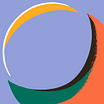
The UN’s recent climate report was full of warnings about the catastrophe that is looming unless the world takes action—fast—and stops burning carbon. It also, for the first time, warned of the dangers of misinformation—the false claims and bad statistics that undermine the growing political consensus on the need for action.
The fight against misinformation is a fight for democracy: politics can’t work without a shared understanding about what is true and what is not. Social media companies have a responsibility and governments play a role, too, but individuals also need the tools to distinguish between truth and misinformation.
This is where data literacy comes in. At the most basic level, data literacy has often been seen as equivalent to numeracy—having the skills to do basic mathematics. But understanding numbers requires so much more than just the ability to do sums. As Tim Harford describes in his indispensable ‘How to make the world add up,’ it's also about checking our emotional response to numbers and striking the right balance between justified caution and outright cynicism.
What would a world look like if everyone understood numbers? Where companies could not make misleading claims about their environmental impact? Where politicians could not claim things that aren’t true? Where people reject campaigning statistics that turn out to be false?
It would be a world where democracy and public engagement were transformed for the better. Data literacy wouldn’t (and shouldn’t) eliminate big and substantive political disagreement; there are serious and genuine differences of opinion that need to be explored through political processes. But it would put the arguments on a firmer footing, disagreeing on the basis of facts and not simply shouting louder and louder at each other.
In an OECD survey last year, just over half of 15-year-olds in the world’s richest countries reported receiving any education on how to distinguish between good and bad information. The focus is still on how to do maths, rather than being able to understand the numbers produced by others. As an example, the UK’s national curriculum requires children to learn maths up to the age of 16, but the focus is entirely on learning to do their own calculations instead of on understanding and critiquing the numbers that surround us in everyday life.
Increasing data literacy is so much more than the acquisition of basic mathematics skills—it’s a revolutionary act. It is a tool of accountability and a way to make democracy work better: when lies don’t work, politicians will be forced to compete for votes on the basis of the facts. Data literacy should also enable people to shape the data landscape, not just as passive consumers but as active citizens who understand where numbers come from and demand data ecosystems that are accountable to them.
Data literacy is a key part of rebalancing power between people and corporations. Let’s go back to the Intergovernmental Panel on Climate Change (IPCC)’s sixth assessment report, which specifically mentions the role of misinformation in sowing doubt about the threat of climate change and delaying action. It’s a tried-and-tested technique, familiar also to tobacco companies who concealed the truth about the link between smoking and lung cancer for decades. People need the skills to see through these deliberately created fogs of numbers for the sake of their health and our planet.
As DataPop Alliance put it, data literacy should spark the “desire and ability to engage constructively in society through and about data.” As societies become more shaped by data and we face existential threats (not least, the current COVID-19 pandemic) that require all of us to understand and act on the numbers that shape policy, there’s an urgent need to act quickly to expand our ability to understand the numbers that surround us—and to use them to make life better.





I fully agree but I would even go deeper than this. In my opinion, Data Literacy is based on critical thinking. Developing critical thinking is primordial in a democracy but it only works if citizens have the curiosity to learn.
Schools should teach "HOW to learn" and not necessarily "WHAT to learn". I mean, until I arrived in college, Internet didn't exist so teaching something specific to kids that would be useful in their adult lives is a bit irrelevant (and pretty much a case of fortune-telling). What should be taught is the curiosity to always learn about the world around us throughout our life.
With a curiosity to learn, people will self-teach themselves but if you don't have that curiosity, you'll always accept information that agrees with your values in the most simplistic way and never ask "but why?".